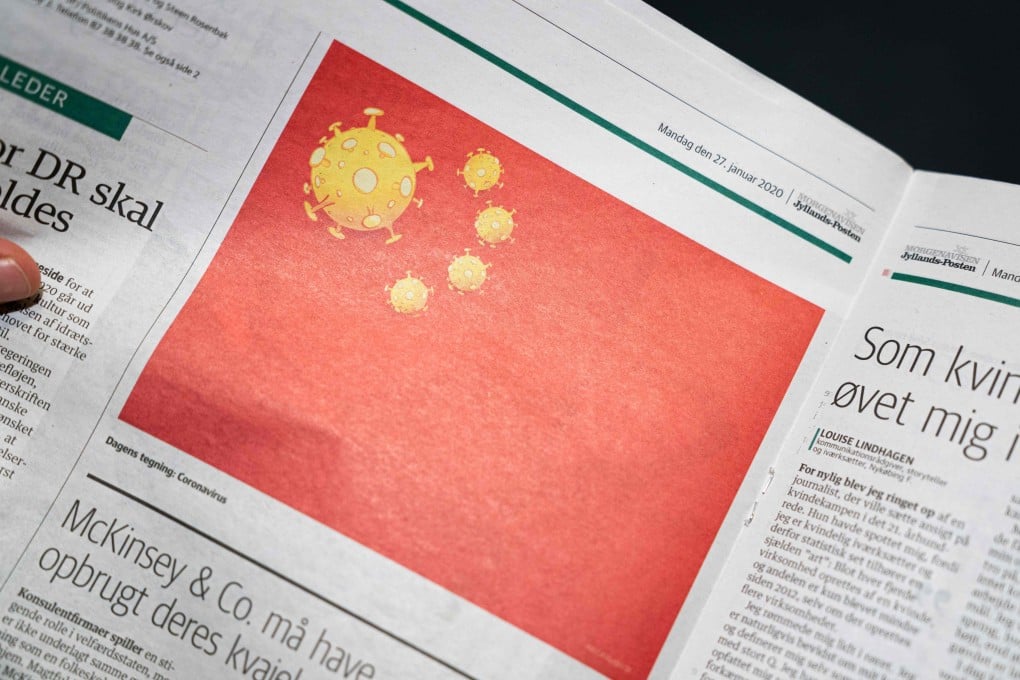Opinion | Biased Western reporting on the coronavirus may have a nasty side effect: a new wave of Chinese nationalism
- Some Western media outlets have invoked the ‘yellow peril’ in their coverage of a ‘Made in China’ virus. Intentionally or not, such an approach is inciting xenophobia in the West and fuelling a nationalistic backlash in China

The cover of the German news magazine Der Spiegel warned about a deadly peril to humankind: “Coronavirus Made in China”. The colour of the words “Made in China” signals to the reader the nature of this peril: it is yellow – as yellow as the five stars on the Chinese national flag, to be precise.
Medically speaking, it makes no sense to put a national label on a virus, but journalistically it does. Blaming a specific nation for “making” an illness channels anxiety and directs anger towards a specific target. It politicises a dangerous epidemic by associating it with a national flag.
Once again, European media outlets large and small are making direct or indirect use of the racist slogan that characterised Western representations of China and East Asia in the 19th century.
Negative representations have long dominated Western reporting on China. It can be argued that this is only fair since such bad news merely reflects bad realities. It can seem morally prudent to highlight shortcomings in a certain country as long as they persist. The long-term repetition of negative news, however, can have a number of unintended negative consequences.
